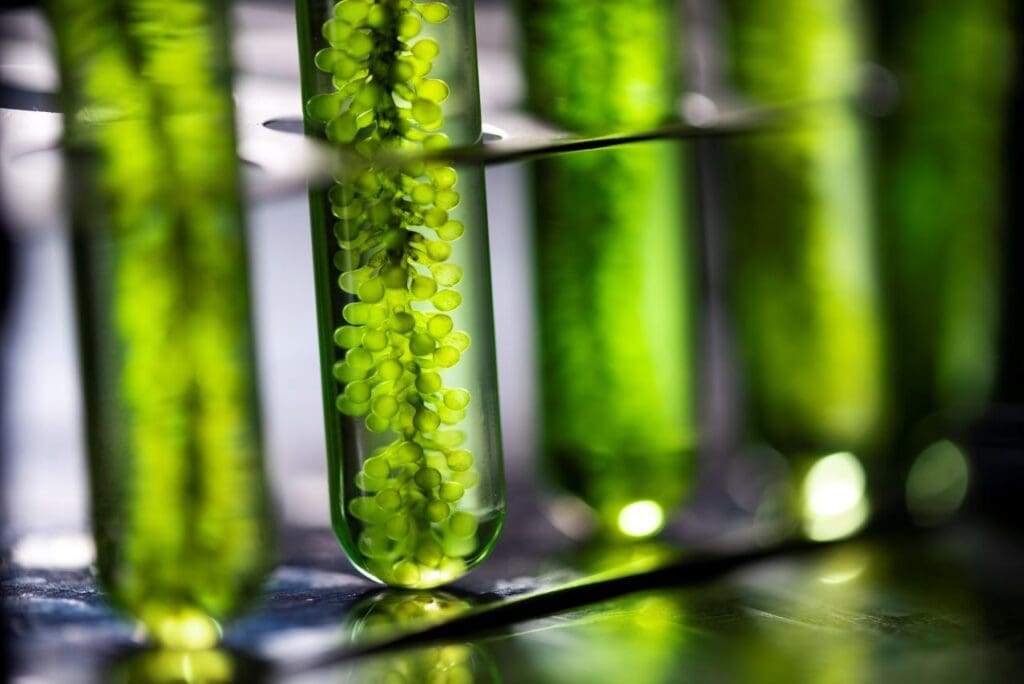
In trying to locate sustainable biofuel alternatives, algae have emerged as a strong contender to be utilised as raw material for biofuels. This has led to a flurry of research to further explore the suitability of algae’s properties to function as a renewable energy source.

Algae is a group of single-celled organisms that exists in either freshwater or saltwater environments
Algae is a group of single-celled organisms that exists in either freshwater or saltwater environments. The majority of strains are photosynthetic and absorb energy from organic carbon instead of atmospheric carbon.
Currently, algae are already used in many commercial applications, such as treating sewage, colouring agents, and producing nutritional supplements. Moreover, algae’s vegetable oil can be put to use directly or even refined into various types of biofuels, such as renewable diesel, jet fuel, and cosmetic products.
Alternatively, carbohydrates can be extracted i.e., sugars, to undergo a process of fermentation and thereby generate biofuels like ethanol and butanol. In this manner, algae’s sugars are also involved in the production of plastic and biochemical products. Interestingly, the biomass of algae can further potentially work as a source of pyrolysis oil and be utilised for heat and power generation.
Although algae biofuel is proving to possibly be a suitable alternative, there are some obstacles that might make it counterproductive. According to a study conducted by Tom Bradley, director of Decerna—a consulting company specialising in low-carbon economies—and his co-authors, the environmental expenses associated with constructing and operating the infrastructure for algae’s growth and processing, along with generating the necessary electricity, tend to outweigh the benefits of algae biofuel.
If you want to know more about the environmental and health effects of chemicals, or how to minimise risk while working with chemicals, we’re here to help. We have tools to help you with mandatory reporting, as well as generating SDS and Risk Assessments. We also have a library of webinars covering global safety regulations, software training, accredited courses, and labelling requirements. For more information, contact us today!
Sources: